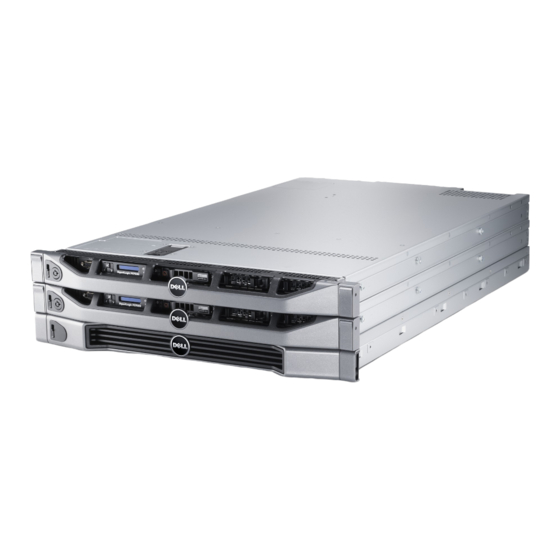Dell FS7500 Technical Manual - Page 7
Browse online or download pdf Technical Manual for Storage Dell FS7500. Dell FS7500 22 pages. Equallogic best practices series network attached storage
Also for Dell FS7500: Manual (18 pages), Overview (7 pages), Hardware Setup (2 pages)

2 Dell EqualLogic FS7500
The FS7500 is a dual active/active architecture that consists of a redundant pair of appliance-like
controller nodes with a backup power supply. The large onboard cache gives the EqualLogic FS7500
the ability to scale performance. Each system provides 48GB of RAM (24GB in each controller node)
that is used for the operating system and the mirrored, battery protected cache memory. The FS7500
can be expanded by adding an additional pair of controllers and new client connections are
automatically load balanced across all nodes.
The EqualLogic FS7500 supports all new and existing EqualLogic arrays with firmware version 5.1 and
later. A single FS7500 system can utilize up to eight EqualLogic PS Series Arrays with the ability to add
another FS7500 system into the same namespace to improve file performance. Each EqualLogic
FS7500 controller has four 1 Gigabit Ethernet ports for NAS connectivity for NFS and CIFS clients. Four
more 1 Gigabit ports are used to connect to the EqualLogic PS Series iSCSI SAN. An additional five
ports on each controller are used for internal communications such as IPMI, cluster heartbeat, and
cache mirroring.
The FS7500 also has built-in snapshot capabilities, using a redirect-on-write method. When a
snapshot is enabled, any changes to existing data are preserved in a snapshot, and subsequent
read/write access is redirected to the new data area. This method of snapshots is implemented in
FluidFS and does not require additional physical disk space for holding snapshots and instead it utilizes
reserved, unused space from the existing NAS file system.
Although outside of the scope of this document, additional features of the FS7500 also include Active
Directory/LDAP integration, NDMP–based backup support, NIS (Network Information Services) and
user quotas.
Note: For additional information on the features of the EqualLogic FS7500, see:
EqualLogic FS7500 Unified Storage Solution
www.dell.com/FS7500
2.1 EqualLogic FS7500 support for Network Attached Storage
Until now, EqualLogic PS Series iSCSI SANs have only supported hosts attached for block storage. With
the integration of the FS7500, EqualLogic SAN owners can now support NFS and CIFS file I/O as well.
Management of the FS7500 is integrated into the EqualLogic Group Manager so that the administrator
can manage both file and block storage from the same application. The EqualLogic Group Manager
continues to use the same user interface, so you do not need to learn a new tool to manage NAS.
Traditional file servers, database servers, mail, and other application servers use local or SAN-attached
block storage. Sometimes a single traditional file server is adequate, however, in other cases
performance, scalability, and even functionality of a single file server can be a limiting factor and using
multiple file servers may have additional management challenges. With the FS7500, it is possible to
consolidate these multiple file servers down to a single namespace and management entity which can
easily be scaled out to meet performance needs due to the scalable nature of both the underlying
EqualLogic SAN and the FluidFS running on the FS7500.
BP1016
Integrating the Dell EqualLogic FS7500 into an Existing SAN
3
